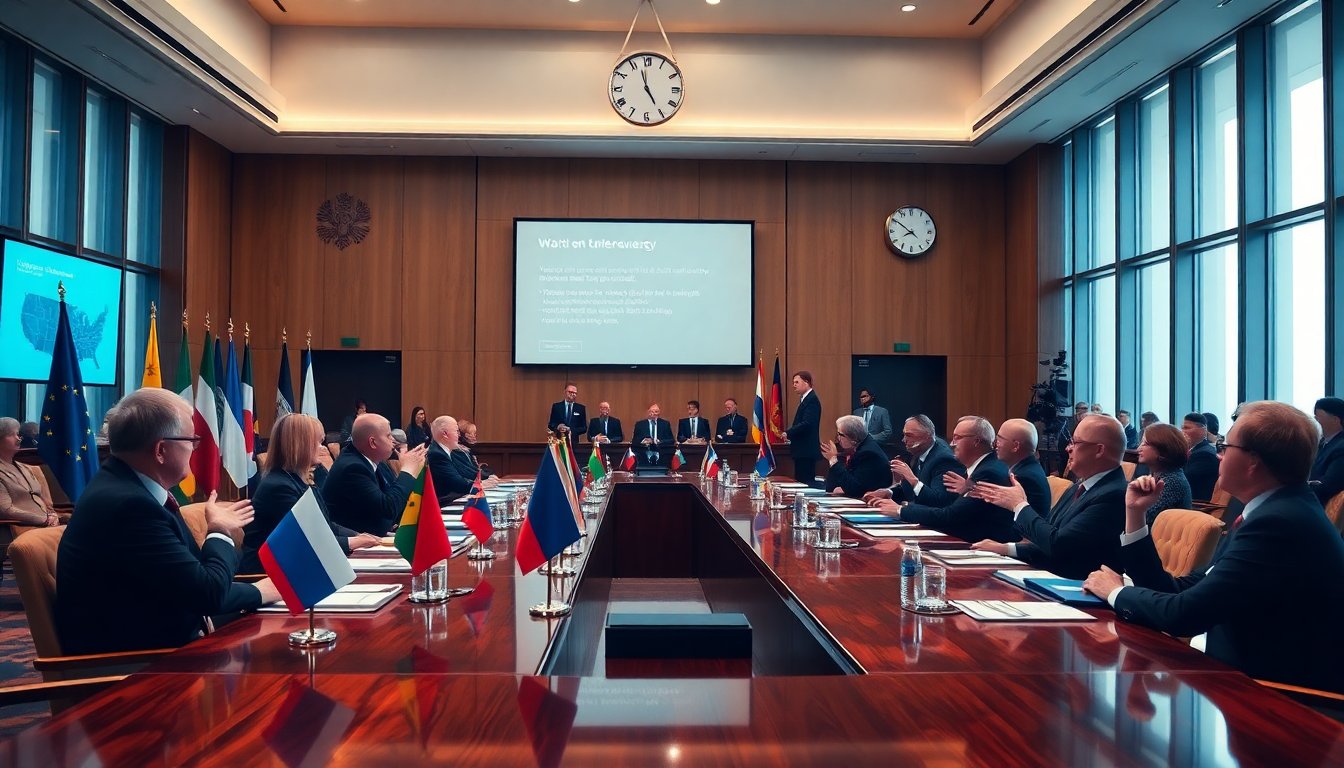Table of Contents
The ongoing geopolitical strife resulting from Russia’s actions in Ukraine has led to significant repercussions, particularly in international aviation governance. Recently, Russia experienced a setback in its efforts to reclaim a seat on the International Civil Aviation Organization’s (ICAO) governing council. This council consists of 36 members, and Russia’s path to regaining its position was obstructed by strong opposition from European nations.
Following the vote, a Russian representative promptly called for a “repeat round of voting,” emphasizing the nation’s unwillingness to accept defeat. This reaction highlights the contentious atmosphere surrounding Russia’s involvement in global aviation matters, especially given its prior expulsion from the council.
Background on Russia’s ICAO expulsion
In 2022, the ICAO Council made the pivotal decision to remove Russia from its ranks. This decision stemmed from several factors, one notable reason being Russia’s illegal seizure of leased aircraft amid the ongoing conflict with Ukraine. This action raised substantial concerns regarding the safety and integrity of international air travel.
Additionally, the council’s decision was linked to Russia’s involvement in the tragic downing of Malaysia Airlines Flight MH17, which occurred over territory controlled by Russian forces. This incident resulted in the loss of 298 lives, further damaging Russia’s reputation on the global stage and contributing to its expulsion from the ICAO.
European Union’s stance on aviation safety
Prior to the voting session, Anna-Kaisa Itkonen, spokesperson for the European Commission, articulated the EU’s firm position against Russia’s reinstatement. She stated it was “unacceptable that a state which endangers the safety and security of air passengers and violates international rules should hold a seat on the organization’s governing body, tasked with upholding those very rules.” This statement reflects the EU’s ongoing commitment to ensuring aviation safety remains uncompromised by political conflicts.
Broader implications of the vote
The failure of Russia’s bid to regain a seat on the ICAO council reflects not only its standing in aviation governance but also broader geopolitical tensions. The ongoing conflict in Ukraine has polarized international relations, with nations aligning based on their political and humanitarian priorities.
While Russia attempted to leverage its influence within the ICAO to enhance its international image, the persistent opposition from the EU and other nations illustrates the significant challenges it faces. The diplomatic landscape surrounding aviation safety is becoming increasingly complex as countries weigh their alliances against humanitarian concerns.
International responses and ramifications
Moreover, the implications of this vote extend beyond the ICAO council. Observers note that the ongoing sanctions and diplomatic isolation imposed on Russia by various countries could hinder its ability to engage effectively in international forums. Recent efforts by Russia and its ally, China, to delay the renewal of sanctions in the U.N. Security Council fell flat, underscoring their declining influence in global governance.
In parallel, the fallout from Russia’s actions has also affected humanitarian efforts. For instance, Doctors Without Borders recently suspended its operations in Gaza City, illustrating how military actions and geopolitical strife can disrupt essential services for vulnerable populations. Such situations exemplify the interconnected nature of international relations and humanitarian efforts, complicating the landscape further.
Considering these developments, it is evident that the path ahead for Russia regarding its participation in international aviation governance remains fraught with challenges. The call for another vote may indicate a deeper struggle to regain legitimacy on the world stage, particularly as countries prioritize safety and adherence to international norms over political alliances.


